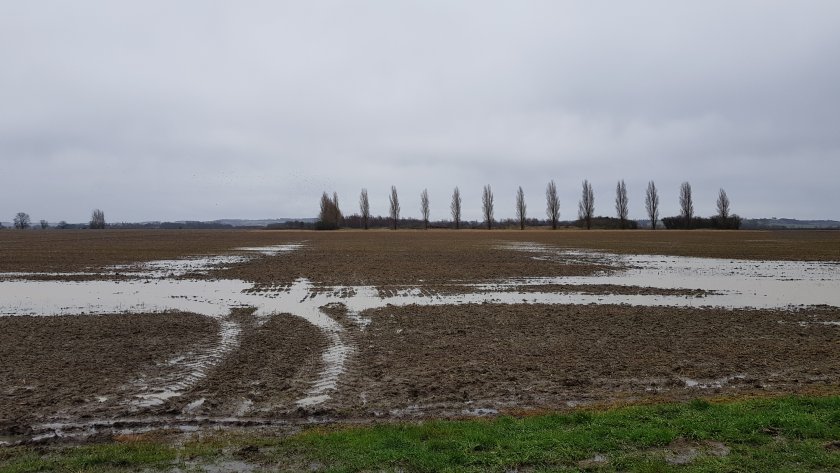
Bean growers have been told they can plant winter seed this spring but need to plan for differences in the crop’s maturity date and expected yield.
The Processors and Growers Research Organisation (PGRO) has received calls from farmers who have winter seed sat in sheds after abandoning drilling last autumn.
While seed can be sown, research shows that rates should be increased to counter the yield impact, and that maturity will take up to 12 days longer in Eastern England.
The PGRO is re-issuing its advice to growers in light of the recent bad weather that has caused major disruption to farms across the UK.
Throughout October and November high levels of rainfall led to rivers overtopping and flood defences being breached, leaving tens of thousands of acres of farmland under water, sometimes washing away newly-sown crops.
This major disruption has caused the drilling of winter beans to be delayed or abandoned entirely, leaving frustrated growers with stockpiles of winter bean seed in their sheds.
Field trials in this area were last carried out in 2013 following an autumn characterised by torrential rain.
PGRO's principal technical officer, Stephen Belcher drilled winter beans in the spring with four populations planted at three sites on three different sowing dates.
The trials work indicated that winter beans at 18 plants/m2 could be grown when planted in the spring, but on average the crop suffered a 34% yield reduction compared to when sown in the autumn.
The yield penalty was reduced to 18% by doubling the seed rate to 36-40 plants/m2.
Spring-sown winter beans also matured between 7 and 12 days later than autumn-sown seed.
He said: “The autumn of 2023 has been extremely challenging for arable farmers and opportunities for fieldwork have been limited, resulting in many crops – including beans – being left unplanted.
“The situation has prompted many calls to the PGRO regarding the viability of using winter bean seed in the spring, and it is absolutely a viable option for growers, but they should expect a lower yield and later maturity than if autumn sown.
“Based on the work carried out in this area, our guidance is to treat the crop very much like a spring bean and to increase the plant population to around 36-40 plants/m2.”
